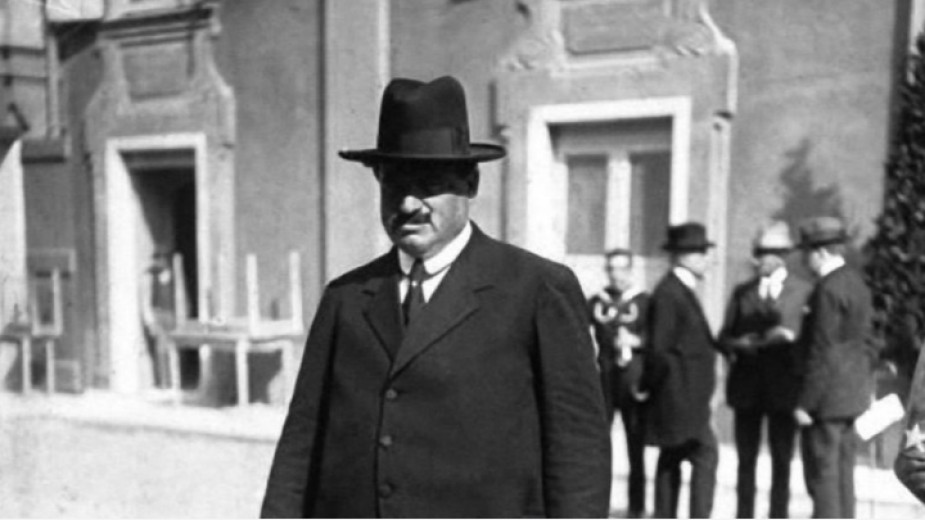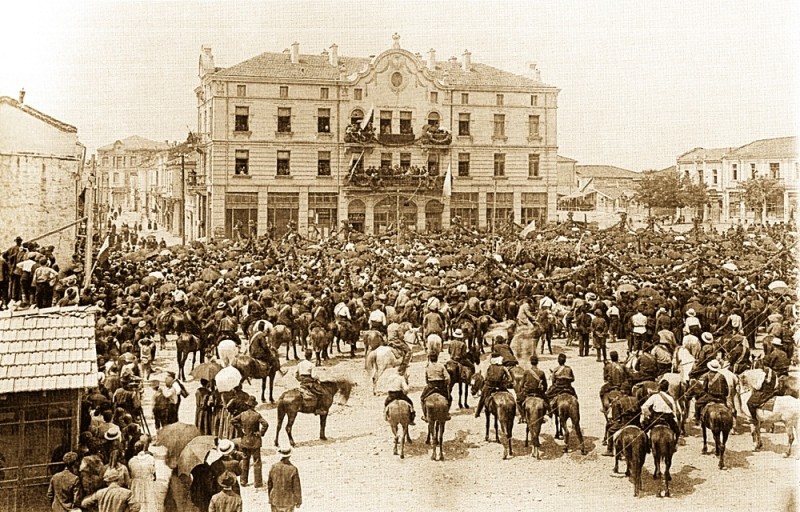 3
3
A century has passed since the memorable date of June 9, 1923, when the government of the Bulgarian Agrarian People's Union (BZNS) led by Aleksandar Stamboliyski was overthrown by a military coup. Historiography from the times of socialism (1944-1989) labeled it as a "fascist coup", but at that time a fascist party existed only in Italy and it ruled from October 1922 to 1926 in a coalition government with the other parties in the country.
The regime established by the Agrarian Union and often called "Orange Dictatorship" was not only extremely left-wing, but was also quite similar to Benito Mussolini's fascists when it came to the methods used. The farmers came to power in Bulgaria after a failed coup attempt in 1918 during the so-called "Soldiers' Uprising" and Bulgaria’s defeat in World War I. The coming of BZNS in power also happened with the help of the Entente, as Stamboliyski agreed to sign the Treaty of Neuilly in 1919. Stamboliyski introduced a theory similar to the class theory of the Russian Bolsheviks according to which, the rural majority was oppressed by “parasitic” urban class that must be subjugated.

Stamboliyski terrorized the leaders of the old bourgeois parties and put them in jail. The threatened parties united in the People's Alliance. However, the leader of the new formation, diplomat and journalist Alexander Grekov, was assassinated in 1922. The Bulgarian society was convinced that the Bulgarian Agrarian People's Union regime was behind the assassination.
The rule of the party was characterized by corruption, trade union strikes and assassinations. The Bulgarian intelligentsia, the church, the remnants of the army and the demobilized officers in the Military Union opposed the authoritarian regime. Fulfilling his obligations to the victorious countries in the First World War, Stamboliyski violated the rights of the Macedonian Bulgarians. He entered into conflict with their influential organization IMRO (VMRO) and even allowed Serbian military to attack IMRO bases in Southwestern Bulgaria. Aleksandar Stamboliyski changed the electoral law and in the elections of 1922, after winning 52% of the vote, he took 212 out of 245 seats in the National Assembly. He also created the "Orange Guards" – a paramilitary formation that fought against his political opponents.
The People's Alliance, the Military Union and IMRO were left without any legal, democratic opportunities to oppose the regime and organized a coup on June 9. The head of state, Tsar Boris III, was not supportive of the forcible change as the young monarch was afraid of Europe’s reaction. However, he accepted the realities imposed and signed the decree for creating a government with Prime Minister Aleksandar Tsankov and ministers from all parties, with the exception of BZNS and the communists. The Tsar’s condition was that Stamboliyski's life should be preserved, but the party leader had already been captured and killed by the IMRO organisation.
The Bulgarian Agrarian People's Union elite fled to the Kingdom of Serbs, Croats, and Slovenes and became involved in a series of attempts planned by Belgrade and Moscow to organize military coups in Bulgaria until 1926.
An ironic fact is that some of the officers who carried out the coups in 1923 and on June 19, 1934, also participated in the communist coup of September 9, 1944.
English version: Al. Markov
Photos: lostbulgaria.com, "Sts. Cyril and Methodius" National Library, BGNES
Every year on February 10, the feast of St. Haralambos , Bishop of Magnesia, is celebrated with special solemnity in a small Bulgarian town in the northernmost part of the country's Black Sea coast . For Shabla and its residents, this is the..
Almost 40 years ago, Bulgarian Orthodox Church communities were established in Western and Central Europe in several cities - Budapest, Munich, Vienna, Stockholm, Malmö, Oslo and Paris. With Bulgaria's accession to the European Union and the expansion..
On February 4, Blagoevgrad will commemorate the 153rd anniversary of the birth of Bulgarian revolutionary Gotse Delchev with a wreath-laying ceremony. The ceremony will take place at 11am in front of the hero's monument on Macedonia Square. Voivode..

+359 2 9336 661
